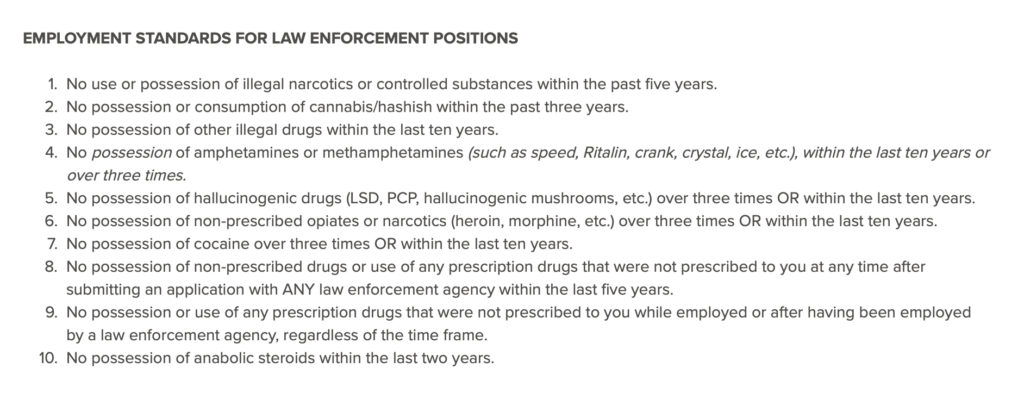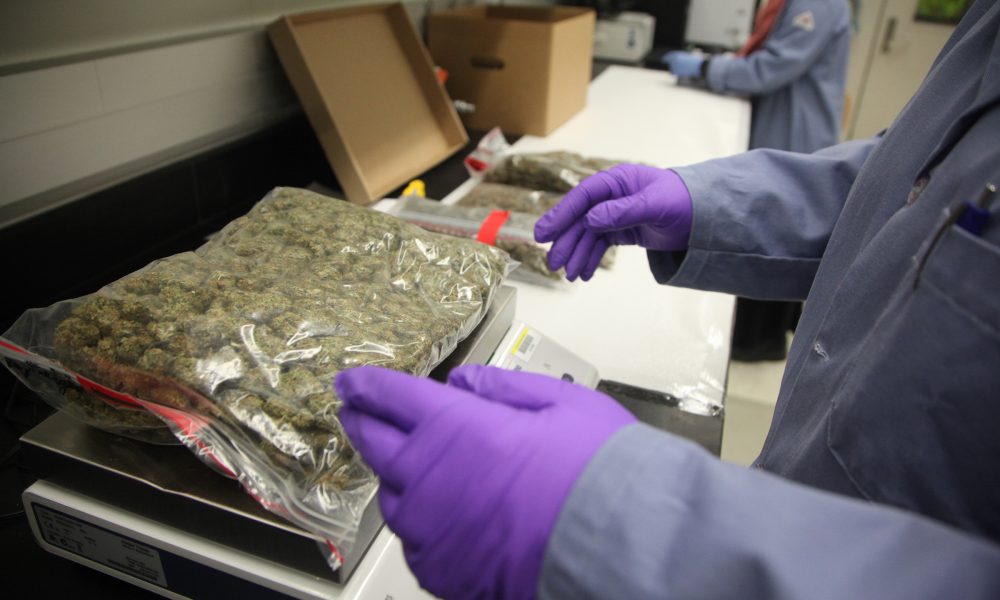Enforcement officers at the Washington State Liquor and Cannabis Board (LCB), the agency tasked with administering the state’s alcohol, marijuana and tobacco and laws, can freely drink a beer or smoke a cigarette without risk to their jobs. But nearly a decade after the state legalized cannabis, they’re still forbidden from using it.
The current restriction isn’t just while on the job, or even while employed with LCB. It extends back three years before they apply for an enforcement position at the agency. Candidates are drug tested and subjected to a polygraph test.
That’s the case for now, anyway, as LCB tells Marijuana Moment it is in the process of “reviewing” the cannabis use policy.
“Overarching all of this is the obvious fact that cannabis is illegal at the federal level,” LCB’s communications director, Brian Smith, explained to Marijuana Moment in an email. “This impacts all sectors of state cannabis systems from banking to traceability to commerce to employment restrictions.”
Indeed, it’s common for state and local law enforcement agencies to ban marijuana use by sworn officers, even in jurisdictions where marijuana is legal. Aside from the policy question of whether police should be able to use the drug off the clock, federal law says people who use cannabis can’t own firearms—something law enforcement officers typically do. More permissive marijuana policies at WSLCB might also jeopardize federal funding the agency receives, Smith said.
“We hear this from medical patients too,” he added, noting that, as in other legal states, patients have hesitated to join the state’s medical marijuana registry due to concern over the federal firearm restriction. That said, the ban is being actively litigated, with a federal judge ruling this month that preventing cannabis consumers from accessing guns is an unconstitutional violation of their Second Amendment rights.
In the meantime, as recent Washington State job descriptions make clear, LCB’s enforcement positions are classified as full-fledged police, with applicants required to have peace officer training and experience. In addition to field duties such as surprise inspections and basic education of licensees and the public, they’re expected to respond to emergencies, make arrests and team up with other law enforcement agencies on investigations and enforcement actions.
Smith said the agency’s limits on drug use by officers, including past use, are similar to requirements set by other Washington law enforcement agencies. “The determination is made by the hiring authority and most times parallel other law enforcement agencies,” he wrote. “I cannot speak to all law enforcement agencies; but most have similar standards as the LCB.”
In fact, LCB has some of the more restrictive drug-use limits in Washington, setting stricter standards in most cases than either the Washington State Patrol or Seattle Police. For many illegal drugs, including methamphetamine, LSD, psilocybin and cocaine, use within the past decade is a no-go for LCB officers. That’s twice as far back as similar restrictions facing state troopers or Seattle police. Cannabis use, meanwhile, is prohibited among LCB enforcement officers going back three years before employment. That’s three times what the state patrol and Seattle police specify.

Washington State Liquor and Cannabis Board
Smith acknowledged that LCB’s three-year prohibition on past marijuana use was significantly longer than other agencies’ requirements. “The LCB is reviewing the requirements” he said, “especially regarding cannabis use pre-hire. No decision made yet.”
Asked whether the Washington State LCB’s strict limits on past drug use hurt the agency’s ability to hire the best people—such as the otherwise qualified applicant who tried mushrooms back in college—Smith reiterated that drug use remains illegal and that LCB’s standards are close to those of other agencies.
LCB’s standards apply specifically to law-enforcement positions, not administrative or educational roles at the agency. But not every state’s marijuana regulators employ literal cops. That’s why the Oregon Liquor and Cannabis Commission (OLCC), for example, doesn’t need to impose such strict limits on employees’ past drug use, according to Mark Pettinger, OLCC’s director of communications and education.
The difference is between LCB and OLCC policies is that “they have sworn officers and we don’t,” Pettinger said in an email. “So there’s a different (higher) standard right there.”
Sworn police officers or not, it’s still the case in several legal states that cannabis regulators are barred from consuming the product they oversee, even when not explicitly bound by federal prohibition. As Detroit Free Press reporter Paul Egan recently pointed out—in the context of more applicants failing drug tests for jobs in state government—even the head of Michigan’s Cannabis Regulatory Agency, “whose job involves stimulating the growth of the state’s recreational marijuana industry, must pass a test showing they don’t use the product.”
California Awards $15 Million In Grants To Support Local Marijuana Equity Programs
Read the full article here

